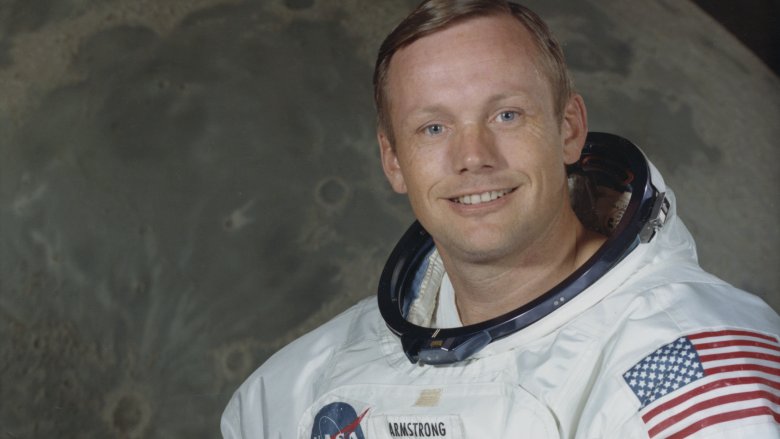Here's How Much Neil Armstrong Was Paid To Land On The Moon
The first moon landing was arguably one of the most dangerous things anyone ever did. If things did not go exactly as planned, if an important piece of equipment failed, if the timing was just slightly off, well, it's possible that those Apollo astronauts wouldn't have made it home. It's a pretty big deal to put yourself in that kind of danger, even if the reward is going down in history with eternal fame and the everlasting adoration of pretty much everyone in America and a fat lot of people outside of America, too.
But still, to take that kind of risk it seems like you'd want to be earning some pretty serious danger money. So what did Neil Armstrong pocket for that trip to the moon? Well, he didn't get paid for the task itself — he got an annual salary, just like other government employees do. According to the Orlando Sentinel, NASA wasn't exactly cagey about what it was paying him, either. "As a civil servant," the agency said in a news release just before the moon landing, "Armstrong, a GS-16 Step 7, earns $30,054 per annum." Now before you become filled with rage on behalf of poor poverty-stricken Neil and his co-astronauts, remember that $30,054 in 1969 dollars is not the same as $30,054 in 2019 dollars. When adjusted for inflation, Armstrong was actually making $208,169, which is not terrible at all, even by danger money standards. Just as a comparison, EHS Today lists "Fishers and Related Fishing Workers" as the most dangerous job in America, and as recently as 2011 the average salary for a commercial fisherman was around $30,220, which is basically Neil Armstrong's salary before it was adjusted for inflation. So as far as danger money is concerned, Armstrong was doing really well.
But how does Armstrong's salary compare to astronauts today? Well, according to Business Insider, a GS-15 Step 10 astronaut, which isn't quite the same level as Armstrong was, earns upwards of $120,000 per year, so astronaut is still an okay career path as far as money is concerned. And it might even possibly be sort of safer than it was in 1969, too. Maybe.
